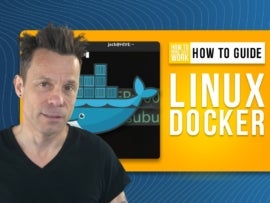
Today’s biggest brands know that omnichannel marketing lets them connect and engage with customers in more ways than one. For one example, when the pandemic hit, Starbucks moved quickly to broaden the way that customers could place orders and built additional functionality into its app to give its customers peace of mind and help maintain social distancing. With the right strategy, businesses of all sizes can transform and leverage technology like this to deepen the relationship and interactions with customers.
As many as 98 per cent of SMS messages are opened, according to research firm Gartner, which says the response rate is a high 45 per cent. These interactions also happen quickly, which means an SMS is usually opened within minutes of being sent.
This is different to other forms of communication, such as email, might take hours or days for the customer to look at, and has a different role to play in the messaging mix. For real-time interactions, SMS might just be the most engaging form of communication for organizations looking to engage customers.
With this opportunity comes responsibility. The nature of messaging is that any communications will sit alongside private messages to family and friends on a person’s mobile device. There’s an intimacy about messaging and an organization needs to make sure that they keep trust top-of-mind with their interactions.
Across WhatsApp, Facebook Messenger, chatbots, and SMS, an organization benefits from making sure that it’s both personalizing the experience because the audience sees messaging as a personal interaction, and adding genuine value via these interactions.
How can messaging be used?
Messaging will be most effective when a business uses it to deliver the unique experiences that customers want and expect from a brand. It works best when it’s cohesive and coherent with the other interactions that the customer is having.
Messaging can be (and is) used to draw the customer’s attention towards sales and promotions, but businesses can find more sophisticated ways of interacting with their customers through this medium. For example, a health clinic might use SMS to send out reminder notifications about bookings to reduce no-shows.
The real-time nature of messaging means that it can be used for live updates. For example, a company might email a customer with an expected day of delivery, so the customer knows they should be home that day to receive it. Meanwhile, messaging can be used to provide updates on the progress of the delivery on the day, allowing the customer to go about their day normally, rather than waiting by the door for the whole day.
A hotel might use messaging to facilitate faster check-ins. A gallery might use it to share information on artists. An event space might use it to assist with wayfinding. Organizations can use messaging to quickly survey their customers and get immediate feedback, too.
For example, one of the biggest global blockbuster TV properties in history is ‘Game of Thrones.’ SMS was a big part of the success of that show. Through a program called the “Three-Eyed Raven,” the show’s publisher, HBO, sent subscribers SMS that linked to a temporary mobile website, which contained sneak peaks for an upcoming season.
Since the website was temporary, and the information shared exclusive to it, the call to action and FOMO effect was enormous, with users capturing information from the site to share on social media and discuss further. One YouTube video created from this material received over 1.5 million views.
Another example that highlights the unique real-time communication power of SMS is Airbnb. With Airbnb, a host is given just 32 hours to accept or decline a guest booking. If they happen to be away from their computers, it’s entirely possible that they can miss bookings by not logging on in time.
The elegant solution that Airbnb found was to send an automated SMS to a host after a short period of time if they don’t immediately respond to the booking request, and that allows them to accept or reject the guest in a timely manner.
This has resulted in an improved percentage of successful bookings. Hosts are happy and guests are satisfied with timely responses.
Building a better messaging practice
Both Airbnb and HBO used Twilio’s messaging platform, MessagingX. This platform was selected as a robust (99.95% API uptime), wide-reaching (900 million data points, daily), and highly customizable solution that could deliver the kind of unique and differentiated customer experiences that these organizations were looking for.
To ensure a cohesive experience across all touch points, the MessagingX solution features one API for transactional SMS, MMS and WhatsApp messaging, and a further conversations API that allows for interactivity across SMS, MMS, WhatsApp, as well as Facebook Messenger and Google’s Business Messages.
It is the strength of these APIs that is particularly appealing to brands like HBO and Airbnb, as it allows their development teams to quickly build and integrate applications within their existing (deep) data resources and ensure a seamless experience across all interactions with their customers.
This is then supported by a wide network of global carrier partners (over 1,500), that allows the organizations to continue leveraging their communications platform of choice.
The benefits of successful messaging
For organizations that can craft unique and compelling messaging interactions, the benefits are significant.
- A more engaging experience
Since consumers opt in and out of messaging easily, those that choose to remain on the messaging list tend to be much more engaged with content delivered through this channel. The Game of Thrones SMS list, mentioned above, had 70,000 members, which is relatively modest in comparison to the overall reach of the show, which was in the millions. However, because this core group was so engaged, the messaging that was sent to them was amplified a hundredfold on social media and via word of mouth.
- Immediate responses
Messaging opens up the opportunity to poll customers in real time, get instant feedback, and collect data quickly. When integrated into the broader data lakes of an organization, this information can help inform broader marketing projects and deliver insights into what does and doesn’t resonate with the most dedicated audience first. Connecting the APIs to other marketing platforms means you can use messaging automation, too. If a customer adds a product to their cart but then navigates away from the site, for example, an SMS will be the most effective way to gently remind them to finalize the check out.
- An affordable solution
With quality APIs and simple integrations, messaging can be a very effective way to develop for and implement highly engaging communications. Small businesses and enterprises alike can benefit equally from messaging campaigns. Indeed, even the smallest of businesses do use messaging to confirm bookings with customers, send notifications of local events, and provide updates on delivery and stock availability.
Ultimately, messaging can be used to build deeper relationships with customers and scale your communication with them rapidly. Successfully doing so relies on leveraging a robust platform that seamlessly integrates with the rest of your marketing software, and then provides communication that maintains the trust of the customer while adding value to their interactions with your brand. For more information on how Twilio MessagingX delivers on the potential of messaging, click here.
Find out how you can use messaging to build a deeper and meaningful relationship with your customers.







